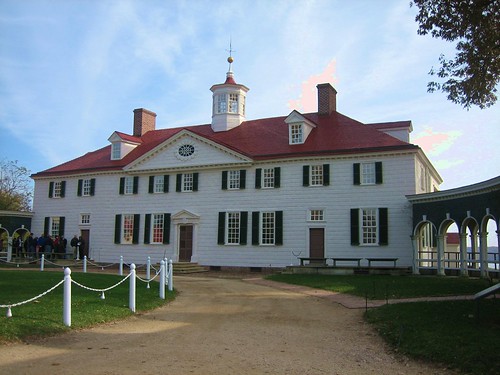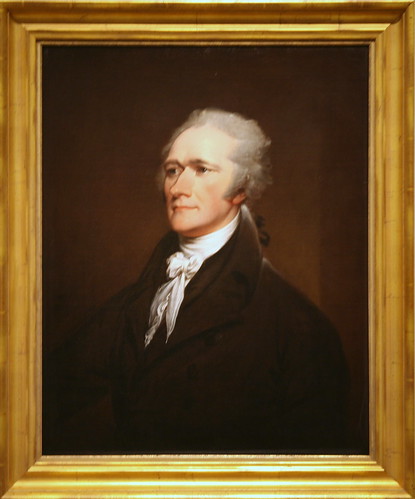Depending on which bloggers and commentators you follow, it was either “sheer brilliance” or “a steaming pile of excrement.” Some saw it as a unifying document for the various strands of conservatism; to others it was so vague as to be meaningless – a rehashing of traditional conservative platitudes in a somewhat more libertarian vocabulary.

As I read through it, the first thing that struck me was simple. Why did they have to use Constitutional as an adjective instead of a noun? Why isn’t the sub-title simply “Constitutionalism: A Statement for the 21st Century?” I suppose the answer to that question is that the MV Statement is written by conservatives for conservatives, and they can’t just leave the “C:” word out. But it’s really not about constitutional conservatism (which some would argue is an oxymoron), it’s about conservative constitutionalism – and the conservatives bring their own slant to the Constitution, their own exegesis and hermeneutics.
At the heart of the MV Statement is this proclamation of five “first principles” for conservatives:
A Constitutional conservatism based on first principles provides the framework for a consistent and meaningful policy agenda.While libertarians were represented among the 80 conservatives present at the signing, many libertarian bloggers have complained that the first three principles are contradictory to the last two. They claim that you sacrifice individual liberty when you emphasize community and religion. They feel that any role for America as the world’s policeman simple goes beyond the powers expressed (or even implied) in the Constitution.
- It applies the principle of limited government based on the rule of law to every proposal.
- It honors the central place of individual liberty in American politics and life.
- It encourages free enterprise, the individual entrepreneur, and economic reforms grounded in market solutions.
- It supports America’s national interest in advancing freedom and opposing tyranny in the world and prudently considers what we can and should do to that end.
- It informs conservatism’s firm defense of family, neighborhood, community, and faith.
Outside the libertarian fold, many see the statement as somewhat cynical. The signing was attended by 80 Bush-era politicos – people who really do believe in individual liberty (except for habeas corpus and the right to privacy) and in limited government (meaning that they can limit taxes and limit regulation on business, but expand the military and the government’s role in social policy to their hearts’ content). They claim that personal liberty is under attack, that the government is tossing aside the Constitution and simply doing as it pleases – yet they cite not a single example. It’s hard to believe they expect to be taken seriously. And their document may be a simple effort to put a saddle on the tea party and see how far they can ride it.
I tend to agree that the Mount Vernon Statement is vague. The five-point foundation for the document is almost ecumenical.
- Who among us doesn’t believe in limited government? We simply disagree as to where those limits are. In the blithering hyperbole of today’s political environment, people yell “socialism!” because they’ve never lived somewhere where you can’t legally buy a beer or kiss your wife in public, where women can’t drive (at any age) or where there’s an internal security act that allows for your indefinite detention without charge or trial, or where the government can tell you how many kids to have (and make it stick).
- What politically active American doesn’t believe in individual liberty (as he perceives it)? We can disagree on how that applies to gun laws or to our right to choose a life partner, but we all believe in it.
- We all believe in capitalism and entrepreneurship; we simply disagree about how much it should be taxed and regulated.
- Freedom from tyranny for starving children in Asia or Africa pulls at the emotions of most Americans (though we may not agree as to what to do about it).
- We all love our families, our communities, and our religion (though we may disagree as to exactly how government should go about protecting those things).
 Image Courtesy of chadh |
Today’s modern conservatives take a similar approach to rewriting history. They hope you're unaware of history. They want to pose as having historic ties of some kind to the “republicans” of early US history – like Thomas Jefferson and James Madison. But these men were members of a political party that called itself the Democratic-Republican Party. Jefferson saw the small time farmer (not banks and commerce) as central to American life. And when the Democratic-Republicans broke up in the 1820’s, the modern Democratic Party was born - and its first candidate, Andrew Jackson, became President. Other factions of the defunct Democratic-Republicans founded the short-lived National Republican Party, and later the Whigs. And when the Whigs fell apart as a political party (another 30 years down the road), some (including Abraham Lincoln) joined a new party that had been founded in 1854 – the Republican Party of today.
The modern conservatives we have now would like to shape that Republican Party, but they themselves have been around with their unique mix of beliefs only since the 1950’s – since William F Buckley, Jr. of the National Review and Robert W Welch, Jr. of the John Birch Society. Their claim to have ties with the Founding Fathers is fabricated and their presentation of early American figures (like Jefferson) as “Republicans” of today is at best misleading.
 Image Courtesy of Cliff1066 |
 Image Courtesy of The Gifted Photographer |
Take your pick: When today's conservatives say they are the political heirs of the Founding Fathers, they are either being deceitful or they are deluded.
And that sound you hear? It’s George Washington turning over in his grave. Having dedicated his life to change and formed a new nation (along with a new model for nation-states) more or less from scratch, it’s hard to make him out to be much of a conservative. And having lived and died without affiliation to any political party, it’s hard to see him as the approving voice for the sort of partisan bickering today’s conservatives seem to thrive on.


2 comments:
Does it count if I visited Mount Vernon in 1956? :-)
Hi Georgia Woman,
Depends on what you want it to count for... :) - greg
Post a Comment